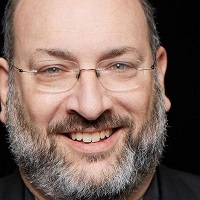 By David Harlow, JD MPH, Principal, The Harlow Group LLC
By David Harlow, JD MPH, Principal, The Harlow Group LLC
Twitter: @healthblawg
Host: Harlow on Healthcare
Now on demand, I am pleased to host Jeanne Pinder, founder and CEO of Clear Health Costs (@chcosts). An accomplished journalist with over two decades of experience with The New York Times. Jeanne founded Clear Health Costs to bring transparency to the health care marketplace and empower consumers to make informed decisions about their health care. Clear Health Costs has partnered with news media outlets in different markets around the country to help shine a light on health care services pricing garnering awards and further coverage for its work. In addition, Jeanne’s TED talk on health care price transparency has garnered well over one million views.
Episode NOW on Demand
Like many innovators on a mission to fix healthcare, Jeanne’s introduction to the fun house of health care pricing was through personal and family experience, including a time
when I was being charged $1,419 for a generic anti-nausea drug that I could buy online for $2.49. I had this long and unsatisfying argument with the hospital, the insurance company, and my employer. Everybody agreed that this is totally standard. Nothing out of the ordinary. The more I thought about it, the more I talked with other people, I realized that nobody has any idea what stuff costs in health care. You don’t know before, during or after that procedure what it will cost. Only months later do you get a bill or an explanation of benefits … that explains exactly nothing.
Jeanne believes that it is important for everyone to be bale to comparison-shop for “shoppable” health care services.
Most people don’t really know that prices vary so much. We assume that prices are somehow fixed or regulated or that they don’t vary quite that much. And yet increasingly people are learning they do vary by a lot.
She is concerned that even insurance company price calculators are not all that accurate because of a built-in bias, where insurance companies may have an interest in steering patients to preferred providers. Jeanne notes that state all-payor claims databases are not all that useful. And some companies connect patients with providers by displaying prices and taking some compensation for connecting patient and provider (a la Kayak or Amazon Marketplace). But “at Clear Health Costs, we’re journalists; we’re not steering people anywhere.”
I asked Jeanne if she has been able to add quality metrics to the comparison shopping data on Clear Health Costs, but she bemoans the lack of truly useful quality measures at the micro level, noting that “if we found a good quality metric we would incorporate it yesterday, because people don’t really want the cheapest appendectomy…. They want good value.” She says quality transparency is as broken as price transparency and so we are left asking neighbors and co-workers and Facebook friends for recommendations.
We shared our frustration at the lack of reliable quality reporting, and with the way in which many hospitals have implemented compliance with pricing transparency regulations (machine-readable, but incomprehensible to mere mortals, chargemaster prices for specific services, by billing code). The price transparency rules are difficult as well, since nearly nobody pays “list price” for health care services.
Jeanne said:
I would stand back and applaud if the hospitals were required to publish not only their chargemaster prices but juxtapose those prices next to the Medicare reimbursement rate (which can be a tenth of the chargemaster price), juxtaposed with the cash price for that same procedure and also the negotiated rates with major insurance companies — Aetna, United Healthcare, Cigna, Blue Cross.
In the time since we spoke, the price transparency executive order has issued, though it remains to be seen whether it will be challenged by industry, and how it is ultimately implemented, if at all.
When I asked Jeanne what she would hope to see five years from now, she replied that she hopes she will have put herself out of business, by succeeding in revealing costs and in encouraging health care consumers to insist on price transparency more broadly.
Meanwhile, Jeanne notes that in a Pew Research poll, 83% of Americans said that high costs were keeping them from getting health care, and that in a CBS poll preceding the midterm elections, 66% of Americans said that health care was their top issue.
We talk to people who can’t afford their medication, who have to choose between paying for health care and paying the mortgage.… Imagine knowing that you can afford the diagnosis and not the cure. This is an untenable situation. It cannot continue.
About the Show
Tune in to Harlow on Healthcare to hear healthcare attorney and award-winning blogger David Harlow and his guests discuss the critical issues shaping the future of health IT and healthcare at large. From cybersecurity to AI, precision medicine to health reform, if the topic is trending Harlow is on it.
This article was originally published on HealthBlawg and is republished here with permission.
